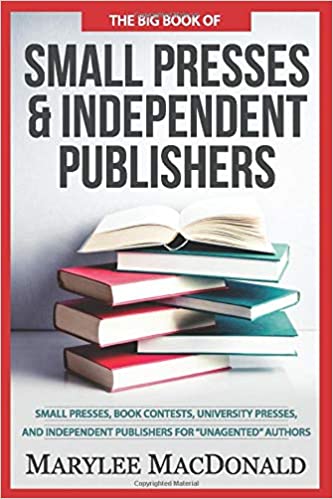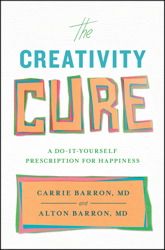Kiko emailed me the other day asking my advice on how to find a literary agent saying she’d been reading my blog posts since 2015 and remembered my post on the value of having a literary agent.

Kiko had recently sent her manuscript for her book out to a publisher. She hadn’t heard back but wanted me to suggest some possible agents and an intellectual property attorney in case she received an offer.
Now, I don’t know exactly why Kiko submitted to one publisher rather than submitting to an agent who would submit to multiple publishers, and she may have had a very good reason for doing so. However, it’s also possible she didn’t know the correct steps for finding an agent, querying publishers and securing a book deal.
When you sign with an agent, the agent can time the submissions to increase the chances that offers come in at the same time, so they can negotiate the best terms and also give you more options at the time of making a decision (so you won’t lose an offer by waiting until you hear from another publisher to respond). In addition, and perhaps even more importantly, agents have relationships with acquisitions editors and are much more likely to get their attention and interest. In fact, many publishers do not accept submissions from authors because they would not have time to read them all. They want to read proposals vetted by professional literary agents. For more reasons to sign with a literary agent, see this post.
In this post, I will provide the steps to take, and then I’ll break it down with specific tips for finding the right agent and publisher, resources to consult and additional resources to make sure your submission is as polished and compelling as it can be.
The Steps to Secure a Literary Agent and a Book Deal

- Write a kick-ass book proposal. Your primary audience is made up of literary agents, acquisitions editors and other members of a publishing house editorial board.
- Write a kick-ass query letter. Jane Friedman’s post on how to write a nonfiction query letter is my favorite.
- Identify literary agents who are a strong match for your book. Try PublishersMarketplace.com and/or QueryTracker or Jeff Herman’s book on literary agents (if it’s up to date). In addition, if you comb the acknowledgements section in books similar to yours you should likely find the agent’s name.
- Customize the query letter for each agent. Why are you querying them specifically? Mention books they’ve represented or other specific reasons.
- In addition to querying by email, consider whether you want to meet and pitch agents in person (or online) at a writers conference. Two great options are The San Francisco Writers Conference (scheduled for July of 2022) and the online Nonfiction Writers Conference (this is an affiliate link and I receive a commission if you sign up for the conference with this link) in May, where I’ll be presenting on how to choose your publishing path.
- Submit your query letter to a handful of agents OR submit to your absolute top choice and offer them a two week exclusive.
- If you get a rejection, ask if they can give you feedback on what’s missing in the proposal or why they passed. If they passed but liked the proposal, ask if they can recommend an agent who is a better fit.
- Send out more queries after rejections come in.
- If you get interest, ask these 9 questions for a literary agent to determine whether this agent is a strong match for you–your communication style, your goals, your needs, your vision, etc.
- Choose a literary agent and have an intellectual property attorney familiar with publishing review their contract and suggest changes.
- Go over the contract with the agent or just send them the attorney’s suggested changes. Some attorneys will negotiate the changes for you. The agent may not change everything the attorney recommends. Note: it used to be that high integrity agents did not charge in advance for their work (they get their payment at the other end, as a percentage of your royalties. That is changing and some top agents will take on projects for a fee, knowing that there is a risk that they will not make enough on your advance or royalties to pay for their time. So if the contract includes an up front payment, do some internet research to see whether the agent has a stellar reputation. If so, it’s not necessarily a problem to pay something up front in order to support the agent’s up front work in pitching the book to publishers.
- When you are happy with the contract, sign!
What Happens After You Sign with a Literary Agent?

Now your agent may ask you to make changes to the book proposal. If you asked the 9 questions mentioned in #7, you should be prepared for those changes and their vision should be aligned with yours.
- Make the changes your agent asks for.
- If you don’t agree with a major change, ask your agent why they suggested it and, if you still don’t agree, gently ask how flexible they are. See if they are open to your reasons for not making those changes. I’ve worked with memoir authors, for example, who don’t want to include key scenes with their spouse in order to protect their kids. It’s important to protect your kids, but you do need to figure out how to make the book work. If you leave out key information, such as crucial character motivation, the storyline may not make sense (for instance, you left your husband but it’s not clear why this is a transformational moment, since you never show any tension between you and said husband). Then, we have a problem.
- Your agent may also request you take particular actions to build your platform/reach/following. Again, hopefully you consulted my list of 9 questions to ask a literary agent and determined ahead of time what steps they want you to take. Take them!
- Your agent will likely make a list of acquisitions editors they plan to ask.
- Your agent will submit to publishers.
- If you asked your agent my 9 questions I shared earlier, you should have a sense of how communicative your agent will be during the submission process. Some agents will email you after every response they receive. Others will wait until all the offers and/or passes are in.
- Most agents will not introduce the author to potential publishers before receiving offers but some agents will do so, whether in person or by video conference call.
- At this point, hopefully you will be fortunate to have offers come in. If you receive more than one offer, it’s an auction! Hooray.
- If you have questions about the acquisitions editor’s vision or plans for the book, talk to your agent and get your questions answered before signing. You will also likely have a chance to speak with the acquisitions editor before signing.
- Ask your agent for their input and listen to your gut as well.
- Your agent will negotiate your advance as well as other aspects of the contract.
- Time to sign!

If you don’t land a literary agent, check out The Big Book of Small Presses and Independent Publishers by Marylee MacDonald. And then if you get an offer, let me know if you want me to introduce you to an IP attorney experienced with book publishing contracts to negotiate your contract with the publisher.
Bon chance!







 Nora
Nora





